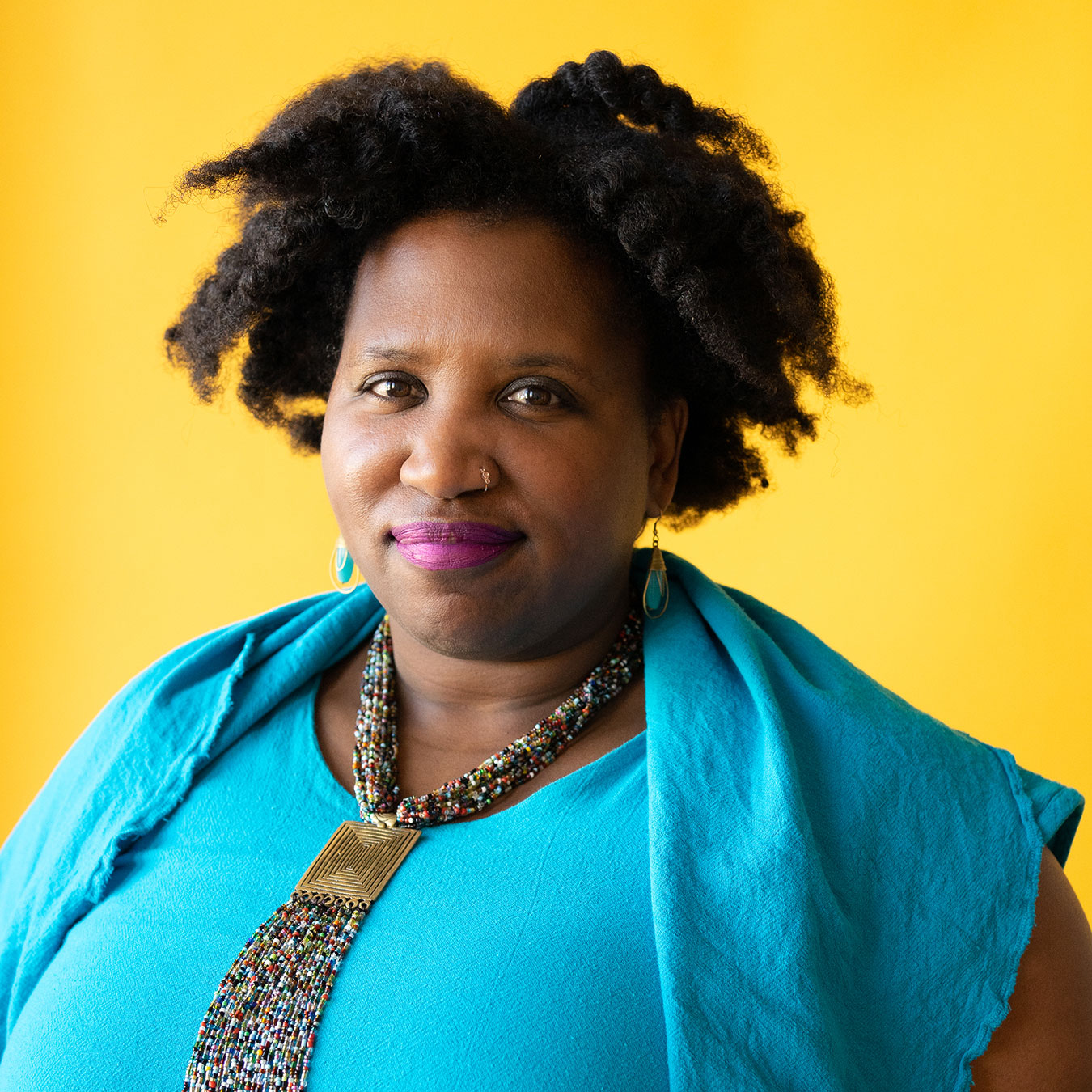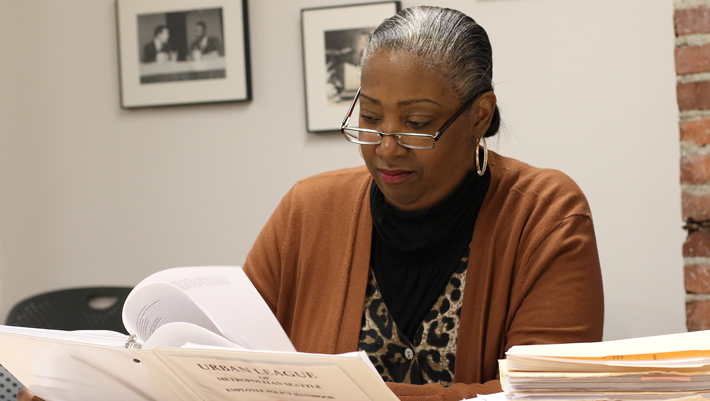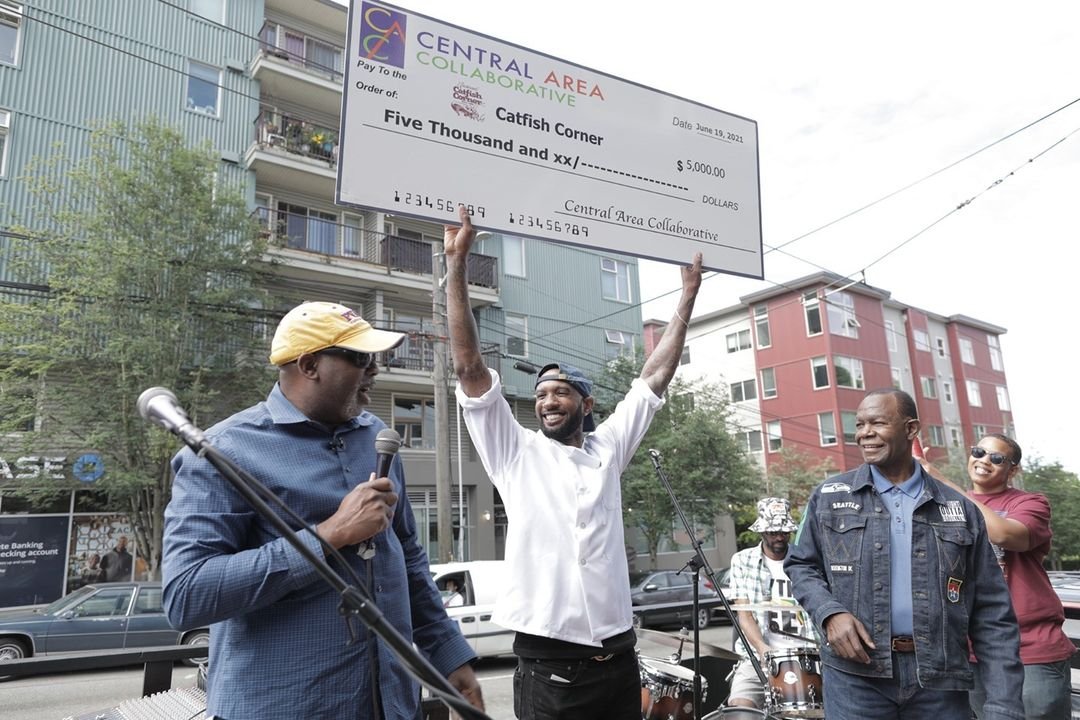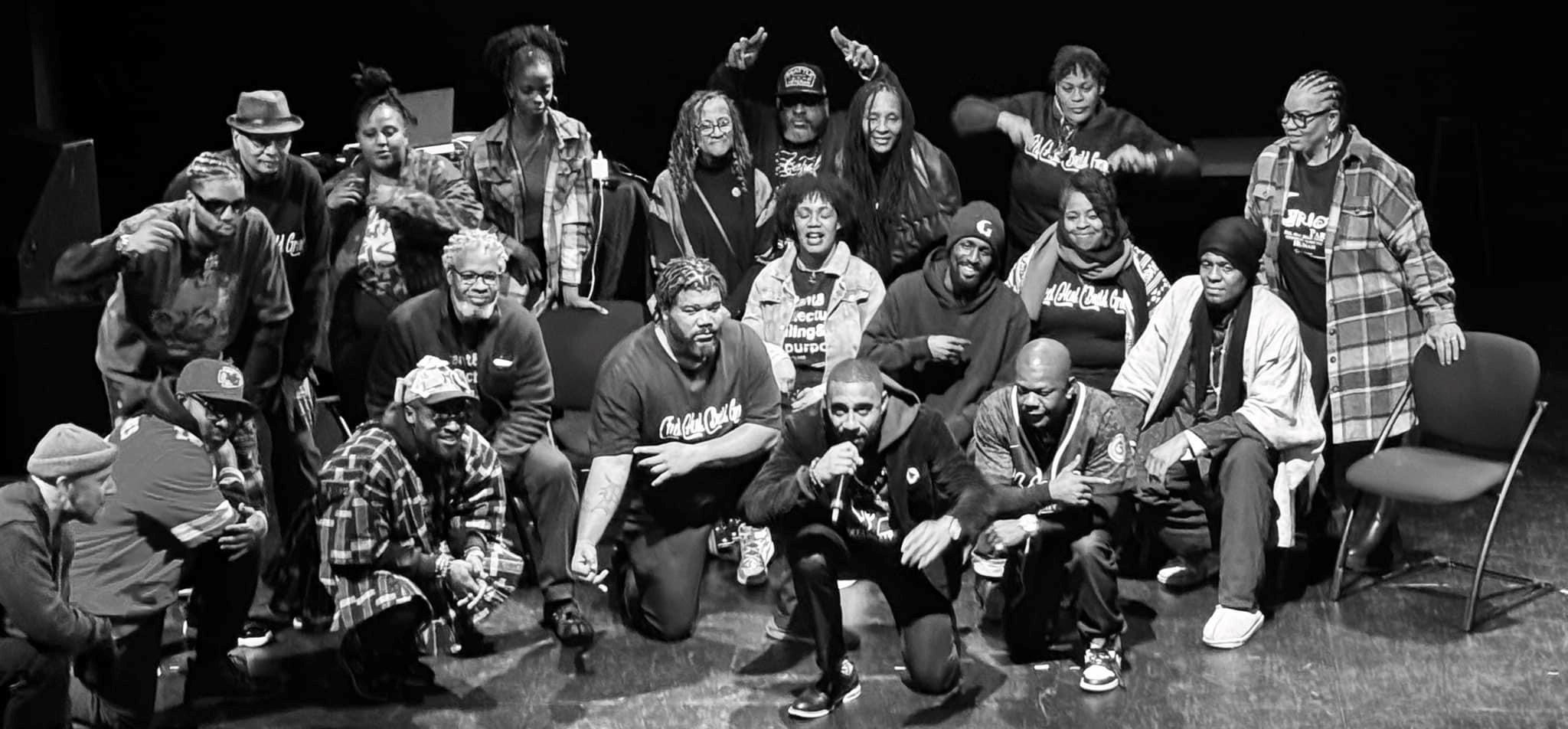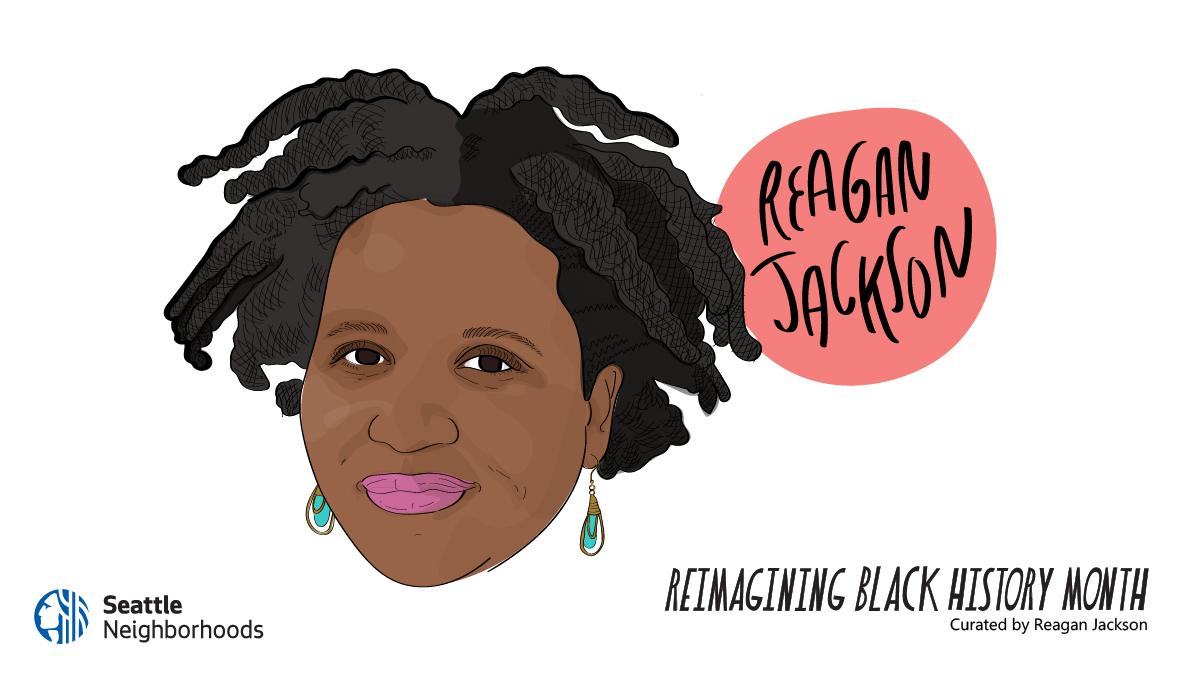
In celebration of Black History Month, we have invited community leader and activist, Reagan Jackson, to curate a series of community stories and profiles that both amplify the Black experience right now and imagine a new Black future in Seattle. Stories will be published throughout the month under #ReimaginingBlackHistoryMonth.
by Reagan Jackson
This Black History Month has been a poignant meditation on joy, resilience, rage, fear, curiosity, pride, and grief. As always, I’m fascinated to learn new tidbits of history like how Norris B. Herndon, a Black gay millionaire, quietly helped fund the civil rights movement or that Rosa Park worked as a sexual assault investigator giving voice to Black women in the south a decade before the Montgomery Bus Boycott or the back story behind how chicken and waffles became the dish of the Harlem Renaissance.
My social media has been flooded with sweet “did you know…” videos as well as invitations to beautiful events and exhibits and performances celebrating Blackness. I only wish it were enough to balance out the other stories like the increasing attack on trans rights (the ACLU has identified 120 anti-trans bills that have been proposed nationwide since the beginning of this year), proposed abortion bills that will criminalize women for making decisions about their own bodies, the anniversary of Trayvon Martin and on and on. I am intentional about cultivating joy in my life, but I can’t help but feel dispirited when every day we wake up to this kind of domestic terrorism.
A moment of Black history I keep thinking about is in 1787 when the US decided on the 3/5th compromise, where only 3 out of 5 enslaved people were allowed to count towards the state’s population to balance the south’s legislative representation and resources. 3/5 human, that’s how much of a person any enslaved person counted as legally until the 13th amendment in 1865. History may not repeat, but it sure rhymes and here I am in 2023 trying to hold onto the truth that I am a whole human. While I don’t identify as trans, you don’t have to be a trans person to know and affirm the truth that they exist and are whole people and to allow any laws to diminish their status or protection under the law is a slippery slope back towards fractional humanity. And it’s a long road to recover from that. I often wonder if we’re there yet. Can I be looked at in the beauty of my brown skin without the echo of past oppression? Can we even call it the past when people are murdered daily for the crime of living while Black?
On one of my recent visits to Portland to see my dad, we were crossing the street near his apartment and a white man spat at us and informed us he didn’t like our people. I clapped back and though the spit didn’t land on our clothes or skin it felt like it had.
In an interview in 1961 writer James Baldwin beautifully captured the feeling I can’t seem to escape. He said: “To be a Negro in this country and to be relatively conscious is to be in a state of rage almost, almost all of the time — and in one’s work. And part of the rage is this: It isn’t only what is happening to you. But it’s what’s happening all around you and all of the time in the face of the most extraordinary and criminal indifference, indifference of most white people in this country, and their ignorance.”
Rage and grief have become my almost daily companions. I live my life. I put in work at my awesome job. I hang out with friends and family, laugh, go for walks, play my ukulele, and mostly they just sit in the corner of my mind, on the edges. But lately, they don’t really seem to leave. Fear creeps in too, especially when I think about the youth I serve and what kind of a future they’re stepping into. My prayer is that we learn enough from the past to create a better future.
Last week I attended the monthly Sister Circle for Y-WE’s Black Girls Matter Mentorship Program. This is a program I piloted last year with the support of a grant from the Department of Education and Early Learning. This year it is being led by Aisha Al Amin. I first met Aisha when she was a brilliantly sarcastic 16-year-old participant in Y-WE’s Youth Leadership Council. Just seeing her fully grown and stepping into her leadership in community is a powerful balm to my spirit. She led a discussion and art project that explored Afro-Futurism and for those two hours, I sat in a community of Black women, girls, and non-binary folk dreaming into our most liberated futures.
I see our resilience most in our dreaming space, that our minds can still tenderly hold the possibility of worlds where we are safe, respected, well-fed, and growing gardens to sustain ourselves and our communities. There is still joy, even when things are hard and scary. Our time together reminded me that joy and hope are just as much a part of our lineage as grief and rage. But I’d really like to see us create a world where there is a more positive balance, where Black joy can step to the forefront and dance.
Thank you for participating in Reimagining Black History Month, whether you were a contributor to the series or a recipient of the work as a reader or as the audience at the events. My hope is that if you identify as Black that you felt seen, affirmed, and connected and had an opportunity to think deeply about the way our history has prepared us for our present and what your dreams are for your Black future. If you do not identify as Black, I hope you also had an opportunity to explore ways to prioritize and protect Black futures as people who love, respect, and benefit from Blackness daily. February is coming to an end, but every day is a perfect day to celebrate Blackness. And also, with March already here, feel free to continue uplifting Black women during Women’s History Month.
